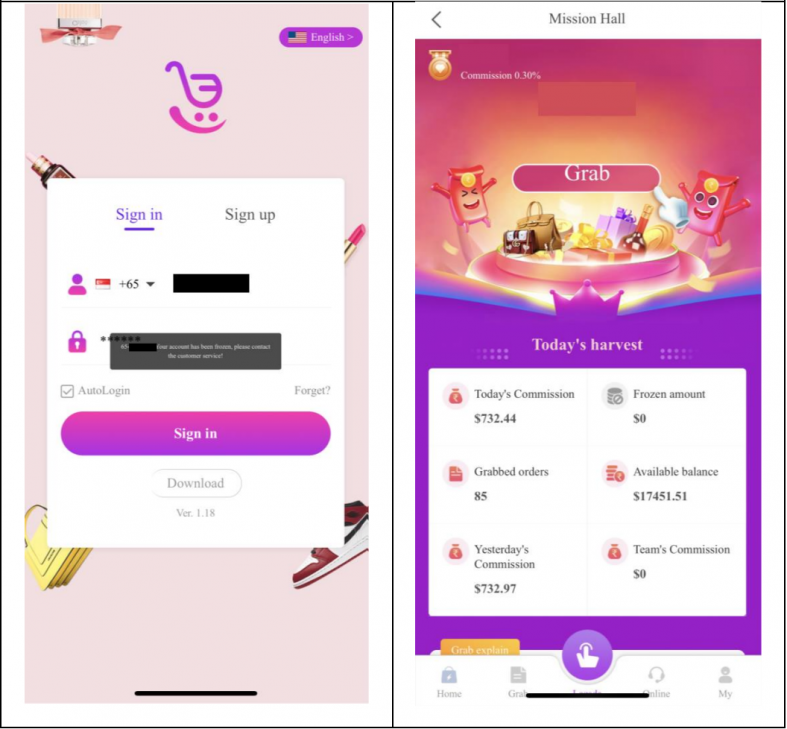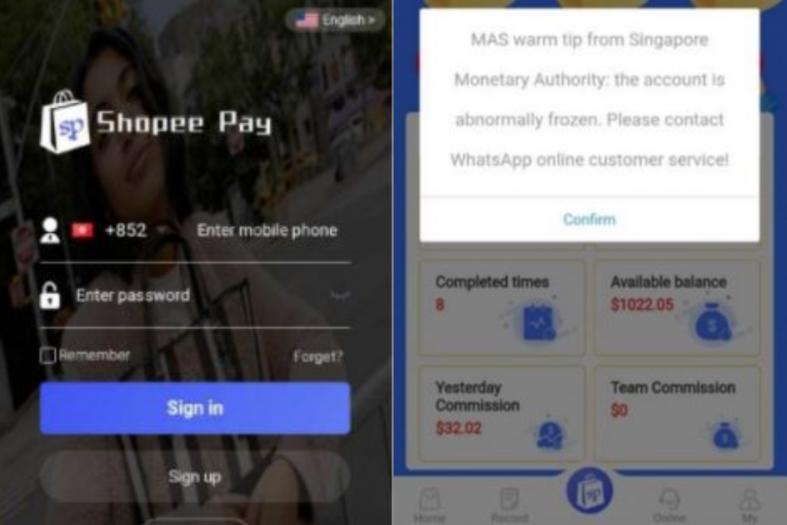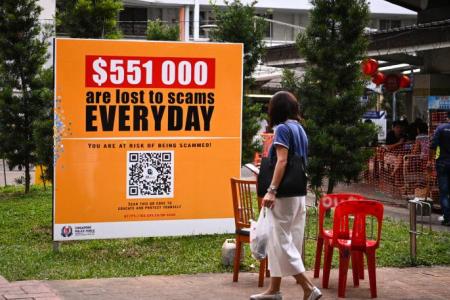Five types of job scams in Singapore and how to avoid them
Five types of job scams have been observed by the Singapore police Anti-Scam Centre from the second half of 2021.
Such scams have become a key concern for the police, who say victims are lured by the convenience of easy jobs which can purportedly be done remotely and the victims are promised high commissions.
ST takes a closer look at them.
1. Fake mobile app
Victims are told to download mobile applications from unverified websites so they can supposedly accept lucrative jobs using the app.
They are told to transfer funds to bank accounts or cryptocurrency wallets provided by the scammer.
In return, they are promised a commission after a number of assigned tasks are completed. Such tasks appear to be aiding businesses.
The supposed commission they have "earned" is then reflected in the mobile app.
But when victims try to cash out, they realise they are unable to do so.

2. Warning letter
The second type appears to have evolved from the first.
Those who fall victim to the first type and try to quit and cash out will be sent warning letters that bear fake letterheads of the local authorities.
Victims are pressured into making further transfers into bank accounts or cryptocurrency wallets to avoid having legal action purportedly taken against them.
3. Easy part-time job
Victims are told they can earn a commission by completing easy tasks, such as liking social media posts, as part of purported part-time affiliate marketing jobs.
They are led to websites that entice them to sign up for packages in order to be offered such jobs, with the amount of commission they are to be purportedly paid depending on the package they pay for.
They are then told to transfer money to the bank accounts of unknown individuals as payment for the packages.
But they soon find that they do not get paid, and they are unable to withdraw the supposed commissions.
4. Movie tickets

Scammers convince victims they can earn a commission by buying and selling movie tickets through an unverified app that they are instructed to download.
Victims are told they have to top up their app accounts to buy the movie tickets and would purportedly receive a commission from ticket sales.
The scammers then provide the victims with bank accounts belonging to unknown individuals for payment to be made.
But, as with the previous scam, the victims do not get paid and they are unable to withdraw the purported commissions.
5. Shopee Pay

Victims are told to download a fake mobile app called "Shopee Pay" from an unverified website to place orders from which they would receive commissions.
The app, which is unrelated to e-commerce platform Shopee, looks legitimate as scammers are spoofing an actual platform. The unverified app is a spoof of Shopee’s real digital wallet called ShopeePay, which is accessed through the real Shopee app.
Shopee does not have a standalone app for its digital wallet.
Victims are instructed to deposit funds into their Shopee Pay account so they can place the orders. Depositing the funds requires them to purchase cryptocurrency and transfer it to another wallet.
The Shopee Pay app then reflects the funds they have supposedly deposited.
But when the victims try to cash out, they are unable to do so or have their accounts suspended.
The following 6S Anti-Scam Self-Protection Principles were developed by the Home Team Behavioural Sciences Centre to help Singaporeans defend themselves against scams:
1. Spot the signs - Recognise the tactics that scammers use.
2. Stop and think - Ask yourself or others if a statement, message or job offer could be true.
3. Slow down, don't rush - Do not rush into providing your personal or banking details.
4. Speak to others - Check with others to verify the authenticity of a claim before doing anything.
5. Safeguard personal details and passwords - Never disclose personal information, even if the request appears to be legitimate.
6. Seek help - Talk to friends or family members for advice or support if you have been impacted by a scam.
Get The New Paper on your phone with the free TNP app. Download from the Apple App Store or Google Play Store now


